When I was a boy, my father regaled me with stories about the history of Sicily. I remember him telling me about coastal watchtowers passing warnings via signal fires from the shores of the island into the interior. (According to historian Robert C. Davis, there are 137 such watchtowers on the coasts of Sicily. Isn’t it great when family legends match up with history?) When I visited Sicily later, I heard similar tales of how the fires from the coastal towers could be seen in Caccamo, and then the message would be passed along to our hometown of Vicari. The fires were lighted to warn the people of raids from the Barbary Pirates, a notorious band of slave traders. One pirate in particular loomed as a bogeyman in stern warnings passed down through the generations. “You had better be a good boy and stay close to home, or Mohammed Dragut will get you.”
Dragut was no fairy-tale character made up to frighten small children but a real pirate who conducted raids throughout the Mediterranean with his crews. Once he attacked the Maltese island of Gozo, capturing approximately 6,000 of its inhabitants and selling them into slavery in Libya in 1551. Other Italian towns suffered the same fate. The abductees were sent to markets around the Middle East, where the Christian chattel was made available “to members of local elites, who were readily able to buy them and sell them” (July 8, 2018; Carlin Irwin, War History Online).
The unfortunate women were used as “sex and labor slaves. The women and young children were forced into prostitution and the men were put into labor” (Irwin). The men worked on farms, fortifications or as galley slaves (picture the chained rowers in “Ben Hur”). According to Ohio State Professor Robert C. Davis, between 1 and 1.25 million Europeans were captured over the centuries by the Barbary Pirates, known by that name because they operated out of ports along the Barbary Coast in the Eastern Mediterranean. The raiders attacked as far away as England, the Netherlands, Ireland and even Iceland.
Surely, the reader must think such activities ended hundreds of years ago, but it wasn’t until a fledgling republic called the United States of America took on these marauders, defeating them over the course of two wars, that the scourge of piracy greatly diminished in the Mediterranean. The famous Marine Corps hymn includes the line “from the halls of Montezuma, to the shores of Tripoli. We will fight our country’s battles, on the land and on the sea.” Why Tripoli? Tripoli, Libya, was a major base for the pirates and was the scene of an amazing U.S. naval feat in 1804.
American merchant ships had been safe from attack in the past when they flew under the English flag. After independence, however, they were fair game for the Barbary Pirates, who knew they had nothing to fear from the far away United States. Thus, American crews were being captured and held hostage, sometimes for as long as 10 years. It was the practice of the Barbary Pirates to demand ransom from countries for captive citizens and tributes in exchange for sparing their ships from attack and their people from enslavement. At the turn of the 19th century, while Europe was embroiled in the Napoleonic wars, raids increased, with one attack ensnaring 950 people, including 700 women and children from an island off the coast of Sardinia.
In this atmosphere, recently inaugurated President Thomas Jefferson received a demand from the Pasha of Tripoli for tribute from the United States to avert assault on the high seas. President Jefferson refused, and after Tripoli declared war on America for its failure to pay, he sent a portion of the nascent U.S. naval fleet to the Mediterranean.
Undermanned, far from home and desperately in need of local support, the commander of the U.S. contingent in the Mediterranean, Edward Preble, met with Ferdinand IV, King of the Two Sicilies. Ferdinand and his court had taken up residence in Messina, Sicily, after Napoleon had invaded Italy and driven the Bourbon king from his capital of Naples. The U.S. requested that they be able to use Sicily as a base of operations against Tripoli. Even with limited resources due to the state of war with the powerful French, the king responded favorably, as any effort to eliminate the constant attacks on his people by the Barbary Pirates would be most welcomed. (The British, who were also at war with France and had a presence in Sicily, were understandably unconcerned with the safety of the U.S. ships.)
The Kingdom of the Two Sicilies provided the Americans with manpower, supplies, small crafts and the use of the ports of Messina, Syracuse and Palermo as naval bases to launch operations against the pirates. Italians comprised 10 percent of the more than 1,000-man U.S. naval task force in the Mediterranean. The king also placed Italian naval officers on the American ships as liaisons and Italian harbor pilots on the American vessels to ensure their safety while navigating the unfamiliar Italian ports.
Tripoli, now the capital of Libya, was a historic port and walled fortress protected by 115 heavy cannons; manned by 25,000 soldiers; and assisted by a fleet of 10 brigs, eight schooners, two large galleys and a host of gunboats, all of which were heavily armed. The city became the focus of the U.S. campaign after a large American warship, the USS Philadelphia, with 32 guns and more than 300 sailors, was captured by the Tripolitan pirates. The Philadelphia had been chasing a pirate vessel close to shore when she ran aground on an uncharted reef near Tripoli and could not be freed even after the cargo was jettisoned. She soon was swarmed by smaller pirate vessels, the crew was captured and the ship was towed into Tripoli Harbor.
The loss of the USS Philadelphia was an embarrassing and stunning blow to the Americans. A ship that powerful could not be allowed to roam the Mediterranean and attack other American vessels. Something had to be done. As luck would have it, the U.S. had recently captured a small Barbary sailing craft as part of their campaign. Led by Lieutenant Stephen Decatur, a select group of 80 U.S. sailors and Marines and five Italian sailors volunteered for the dangerous mission to recapture or destroy the Philadelphia, which was moored in the center of Tripoli Harbor.
An Italian naval liaison who had been piloting Commodore Preble’s flagship bravely volunteered to pilot the attack vessel for Decatur. A native of Palermo, Salvatore Catalano was an experienced sailor who spoke the language of the Barbary corsairs fluently and knew enough English as a result of the British fleet’s presence in Sicily. Catalano’s skill, composure, and knowledge of the reefs and shoals of Tripoli Harbor would be essential to the mission.
The captured pirate craft was made to look like a trading vessel, and Decatur and the five Sicilian volunteers were placed on the upper deck to further camouflage the secret purpose of the ship, now known as the USS Intrepid. In the cramped area below the deck, 75 Americans waited with pistols, cutlasses and combustibles as the small ship approached the harbor. At that time, a significant storm was approaching, and Catalano expertly guided the vessel to a hidden cove farther down the coast to wait it out.
After the winds and rain abated and under the light of a crescent moon, Catalano skillfully navigated the USS Intrepid into the fortified enemy harbor and through the pirate fleet toward the captured USS Philadelphia. In addition to the scores of fortress guns that could have easily blown the Intrepid out of the water, moored near their goal were numerous Tripolitan gunboats and three manned cruisers mounting 20-plus guns. The pirates acting as the crew of the Philadelphia called out to Catalano and asked him why he was coming close to their ship. Thinking fast, Catalano explained in the local dialect that his craft had lost its anchors in the recent storm and needed to tie up for the night before new anchors were bought, Catalano continued to make small talk with the men aboard the captured American vessel while his ship drew nearer. At just the right moment, the hidden Americans sprung to the attack, climbing over the side of the Intrepid and onto the Philadelphia using only bladed weapons to avoid the noise of pistols. Twenty pirates were dispatched, one was captured and the rest jumped overboard while only one American was wounded.
Decatur quickly realized they could not sail the damaged Philadelphia out, so the Americans set fire to the ship. As they attempted to sail away from the now-burning vessel, the heat pulled them backward, and the Tripolitans started to fire at them. Fortunately, the winds turned, and Catalano was able to pilot the exposed Intrepid through the barrage of musket and cannon fire. They escaped the harbor and sailed away to the safety of Siracusa.
It was a stunning victory for the Americans. Decatur glowingly praised the officers and crew, duly noting that, “It would be an injustice in me to pass over the services of Salvatore, the pilot, on whose good conduct the success of the enterprise in the greatest degree depended.” Upon hearing news of the victory in Tripoli, Pope Pius VII publicly declared that, “The United States, though in their infancy, had done more to humble and humiliate the anti-Christian barbarians on the African coast in one night than all the European states had done for a long period of time.”
As a reward for his services and upon the recommendation of the newly minted Captain Decatur, Salvatore Catalano was given the position of master of sails at the U.S. Navy Yard in Washington. He married into a prominent local Catholic family and held his naval position until his death in 1846.
The above appears in the February 2023 issue of the print version of Fra Noi. Our gorgeous, monthly magazine contains a veritable feast of news and views, profiles and features, entertainment and culture. To subscribe, click here.
 Fra Noi Embrace Your Inner Italian
Fra Noi Embrace Your Inner Italian


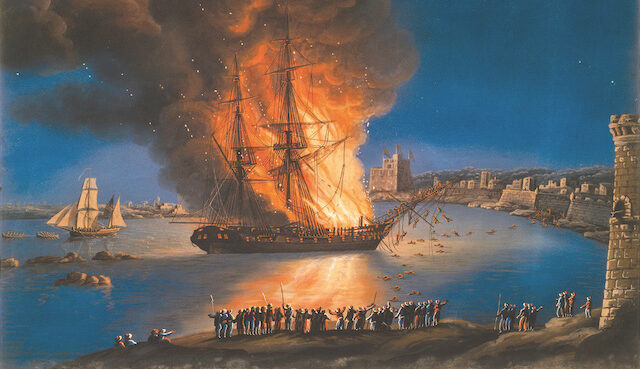
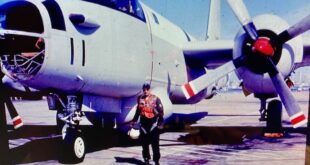
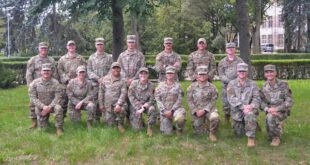
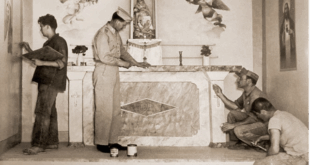
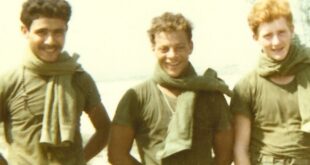
I left out that the famous admiral Nelson thought this was one of the great naval feats of all time.
Sam